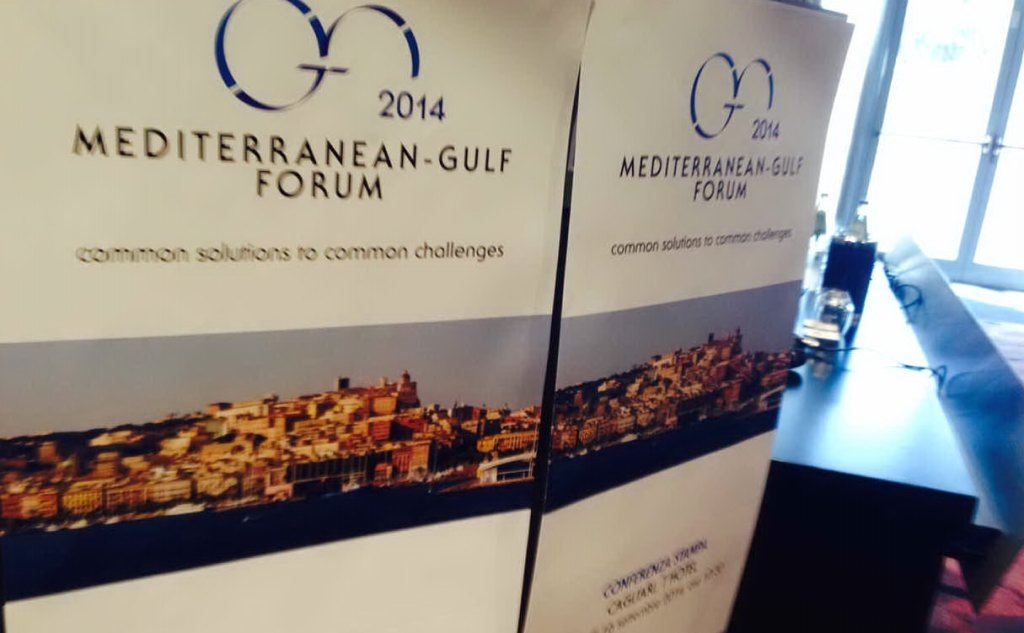Providing international politics with a new and concrete platform of cooperation and dialogue, aimed at fostering the adoption of Common Solutions to the Common Challenges affecting the Mediterranean and the Gulf region today. This is the objective of the Mediterranean-Gulf Forum (MGF), a new major international initiative that inaugurated its First Edition in Cagliari (Italy) on Saturday 11 October 2014. The MGF is promoted by the Italian Atlantic Committee and “Abhath” – Al Thuraya Consultancy and Researches in Abu Dhabi (UAE), and convened prominent guests from Europe and the Middle East, including government and institutional authorities; high representatives from the political, diplomatic, military, academic, and economic field; officials from regional and international organizations; experts, researchers, and professionals; journalists and media operators.
The proceedings consisted of an opening and a closing ceremony, and three panel sessions on the most pressing topical matters. The first session − Cooperative Security and Regional Crises − discussed the surge of terrorism and extremist forces in Iraq, Syria, Libya, Sinai, and other relevant areas, as a vital threat to the stability and the common security of the Mediterranean and the Gulf. The speakers concurred that the adoption of synergic and coordinated responses is essential to effectively cope with such a transnational and cross-border phenomenon, being also the main cause of the unsolved emergencies affecting the refugees and the immigration from southern Mediterranean countries to Europe. The session examined the situation in the most critical regional flashpoints and the possible ways to enhance cooperation and partnership relations in counterterrorism, as well as in managing and preventing humanitarian crises.
The second session − Socio-Economic Development in the Southern Mediterranean – focused on the socio-economic instability factors which have been a major trigger for the unrest erupted throughout the Arab world in recent years. To address disruptive questions such as youth unemployment, food security, and marginalization is fundamental to the normalization of the political process in the countries affected by domestic turmoil, depriving radical forces of a breeding ground to exploit. This session relaunched the strategies for the development and the modernization of the southern Mediterranean, with a particular attention on the challenges to be met in order to foster economic growth.
The third session – The Path to Moderation and the Future of the Middle East – raised the case of moderation in the cultural and political sphere, which must prevail over radicalism and sectarian animosity, being the main catalysts of the current wave of conflicts and violence marring the broader region. The session concentrated on the prospects of the intercultural and interfaith dialogue, the issue of education, the future of minorities, and the path towards the achievement of a “new ecumenism” among religions and their various denominations, which is the prerequisite for the pacification of the area.
MGF is the result of a joint effort involving researchers, experts, and professionals from Mediterranean and Gulf countries. Against a backdrop of mounting insecurity and humanitarian tragedies, MGF intends to exert a direct and constructive impact on the processes underway in the Middle East, so as to steer them towards a new era of security, integration, good governance, and common progress. Starting with Cagliari’s meeting.
Emiliano Stornelli – Director of the Mediterranean and Middle East Program, Italian Atlantic Committee








